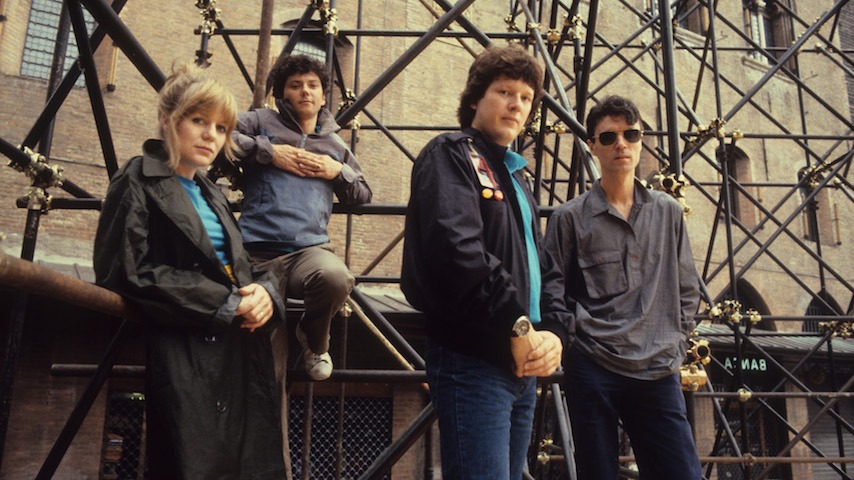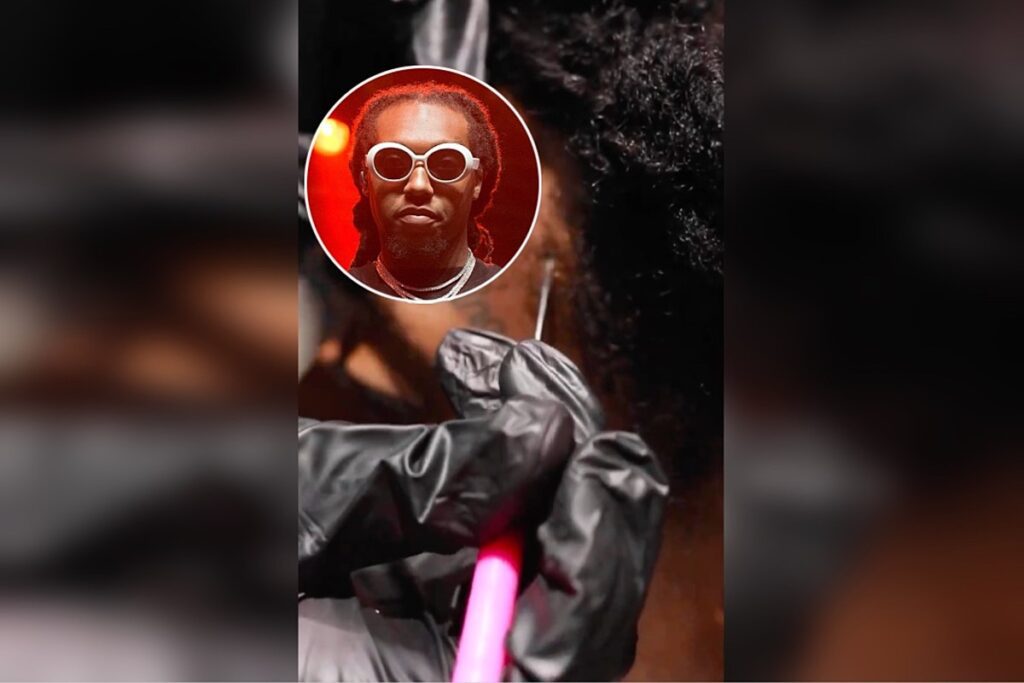On January 11, 2021, a fed-up State Department employee edited the biographies of President Donald J. Trump and Vice President Mike Pence to falsely indicate that their terms would end that evening. It was a rogue act that has launched an internal investigation, serving as fodder for a bevy of memes and leading me to further ruminate on the 1977 classic Talking Heads song “Don’t Worry About the Government.”
In “Don’t Worry About the Government,” Talking Heads frontman David Byrne larks about the pleasure of pausing the work day to entertain the company of “loved ones” who, like “civil servants,” (wink, wink) “work so hard and try to be strong.” It’s sentimental without being saccharine, and sonically, it has allowed me to occasionally reenter a world that has been deemed mostly inaccessible due to necessary pandemic restrictions—a world in which I marvel at “the clouds that move across the sky” and conjure gratitude for “people that are working for me.” But as I revisited the song after the insurrection and again when hearing about the aforementioned “civil servant” at the State Department, I couldn’t help but wonder: is “Don’t Worry About the Government” truly an optimistic ditty about anchoring your joy in moments of levity and cultivating respect for community members? Or is it an ironic song about needing to distract ourselves from the frustrating limitations of our institutions?
Music is implicitly or otherwise political. It reflects the varied ways personal experience shapes our perceptions of the world, how people navigate those perceptions and exercise their agency. What’s so political about the Baha Men’s calypso earworm “Who Lets the Dogs Out,” or contrastingly, Baby Keem’s laid back cunnilingus-centric banger “Orange Soda”? I’m glad you asked. This article is about the Talking Heads and the resonance of their music as President-elect Joe Biden takes office, but to further illustrate the presence of political power in all music, indulge my discussion of these two songs.
While we attribute “Who Let the Dogs Out” to the Baha Men, they did not originally release the song. In fact, filmmaker Ben Sisto made an entire documentary about how the song, which has been released multiple times over the past 40 years by various artists, presents “one of the most complicated … copyrighting cases in music history.” So we are mostly unsure who first let the dogs out, and why people were so receptive to the question when it was presented for the umpteenth time by Carribean men in Hawaiian shirts. The politics of the song exist via its marketing and ownership context. As for “Orange Soda,” a rap staple of 2020, there’s a legacy of the link between Black masculinized sexual prowess and the focalization of female pleasure in rap and hip-hop culture. So when Baby Keem says “Bitch sit on my face I attack that,” not only is the speaker instigating oral sex, he is tethering his bravado to his interest in centering his partner’s fulfillment. These are the gendered and racialized politics of desire.
So, how can we apply this logic to “Don’t Worry About the Government”? By focusing not only on what Byrne sings, but also on the multiplicity of things those lyrics gesture towards and ultimately, evoke for listeners. Perhaps it is less important to deliberately pinpoint whether this Talking Heads song was designed to be sincere or biting, and more important to consider why the tension within that very question may be the point.
When Byrne sings, “I’m a lucky to live in my building” and “My building has every convenience / It’s gonna make life easy for me,” he could be voicing the satisfaction that accompanies having a reliable place of one’s own, or he could be voicing the empty measurements of personal worth America generationally ascribes to convenience and property ownership. The movement from the nature scene in the song’s opening stanza with the fragrant “pine trees” and “peaches in the woods” to the “highway that goes to the building” signal a shift in environment that could be a celebration of urban sprawl or sequestration away from that which is intrinsic or natural. The building in that latter reading then becomes a distancing element from the loved ones, rather than a place of pure communion for the speaker. All of these possibilities do not cancel one another out. In fact, the song offers something new with nearly every listen.
During some listens, perhaps we resonate more with the joy of the loved one that is visiting the speaker who lives in the proverbial building. Maybe during other listens, Byrne’s “It’s gonna make life easy for me” harkens back to times when we’ve naively believed that a new apartment or city, newfound wealth or status, or Presidential administration would help us fulfill our idealized version of personhood or citizenship. We are not tasked to select the ironic bits over the sincere bits or vice versa because all of those things are overlaid and interwoven. They sit inside the same song, waiting to be seen from each and every purview.
The beauty of “Don’t Worry About the Government” and its political design, deliberately or otherwise, is that it echoes the possibilities the listener hears inside of it. Its majesty is in the riddle of its aims. And for the three-or-so minutes of the song’s duration, I am enraptured by the nature scenes, the highway, the clouds, the building, the civil servants in D.C and the puzzle at the heart of the song. And paradoxically, for those few delectable, fleeting moments, I stop worrying about the government.
Adesola Thomas is a screenwriter and culture writer. She loves talking about Annette Benning’s performance in 20th Century Women and making lasagna.




